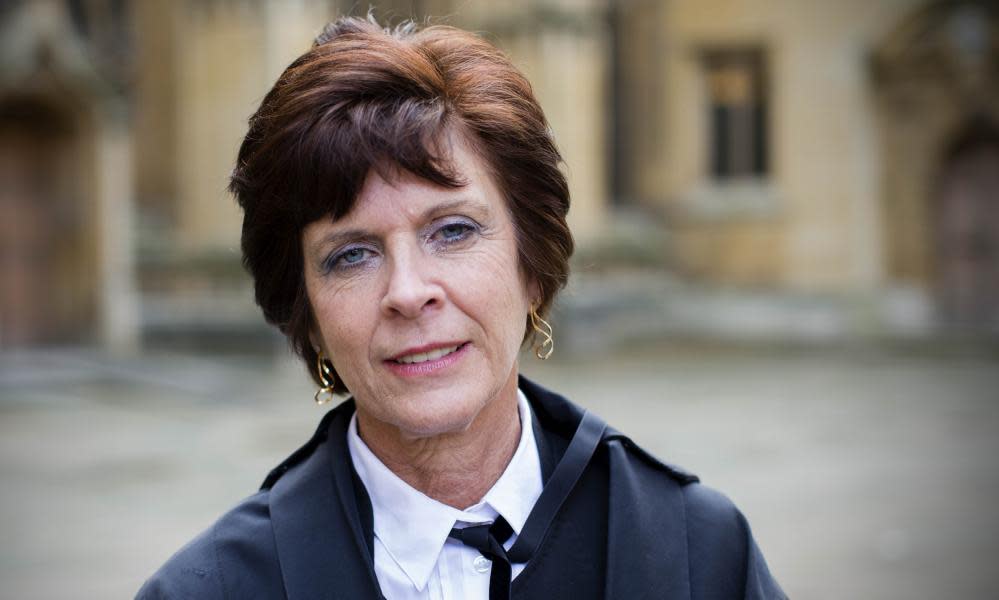Vice-chancellors told high pay is immoral amid rising student debt

MPs have told a panel of vice-chancellors that the high rate of pay enjoyed by some university leaders is immoral, given taxpayer subsidies and rising levels of student debt.
During a parliamentary hearing on value for money in higher education, MPs on the education select committee repeatedly asked vice-chancellors in England to justify their levels of pay, with MPs saying that greater regulation may be needed to curb high pay.
Peter Horrocks, the vice-chancellor of the Open University, told the committee he had asked for his official residence to be sold and for his university to re-evaluate his own pay, which in 2015-16 stood at £347,000 including pension contributions.
“We have to acknowledge that this is a significant public issue and something that potentially undermines the value of universities in this country,” Horrocks told MPs.
The hearing came as a string of universities across the UK prepared for strike action on Thursday, with lecturers and professors battling with university administrations over efforts to cut pensions awarded to staff.
Prof Louise Richardson, the vice-chancellor of Oxford University, rejected suggestions her pay should be based on performance, after the committee’s chair, Robert Halfon, said it could be linked to Oxford’s admissions of disadvantaged students.
“We lead very complex institutions and it is very difficult to reproduce what we do to simple matrices,” Richardson told the committee. “I think the reduction of the complex, nuanced education we provide to starting salaries, or salaries at any point, is a mistake. It’s to miss much of the important thing of what we do, which is provide an education.”
Michelle Donelan, the Conservative MP for Chippenham, noted that in many cases university leaders were being paid far more than the prime minister.
“We need to be very careful in how we present our justifications for what are overinflated salaries in my mind and in the minds of many of the public,” Donelan told the vice-chancellors.
“Isn’t the answer, therefore, regulation? Because this is a very different scenario than just a free market. This is funded via the taxpayer and via students going to universities who are racking up huge debts.
“Surely it’s immoral to have these huge salaries, higher than roles such as the prime minister running the country, while you have students with high debts?”
Richardson replied that while the prime minister’s pay came entirely from the taxpayer, only a small percentage of Oxford’s income derived from government-backed revenue. “The amount the taxpayer contributes to the £2.2bn annual operating budget for Oxford, for teaching is 9%. If you include all the taxpayers’ money, including all the research funding, it’s still less than 20%,” she said.
Oxford’s consolidated accounts for the last financial year show that £772m of its total expenditure was due to the Oxford University Press, its profitable publishing arm. Excluding that entry, the more than £400m received from the government amounted to a far higher proportion.
“We’re a global institution, you need to understand,” Richardson told the committee. “So is the country,” James Frith, the Labour MP for Bury North, replied in reference to the prime minister’s salary.
Richardson was also questioned by the Labour MP Lucy Powell over Cambridge’s failure to admit a talented black student in her constituency, who was predicted to gain top A-level grades despite going to a “really terrible secondary school”, according to Powell.
“If anyone looked at his life and where he had been educated and his journey, I don’t think there’s a single other student in the country that would have beaten him in that context. I just wonder what more you can do,” Powell said.
“I can only assume that there were equally extraordinary kids who applied to Cambridge from comparable backgrounds who did get that place. But yes, there’s always more we can do,” Richardson said.

 Yahoo News
Yahoo News 
